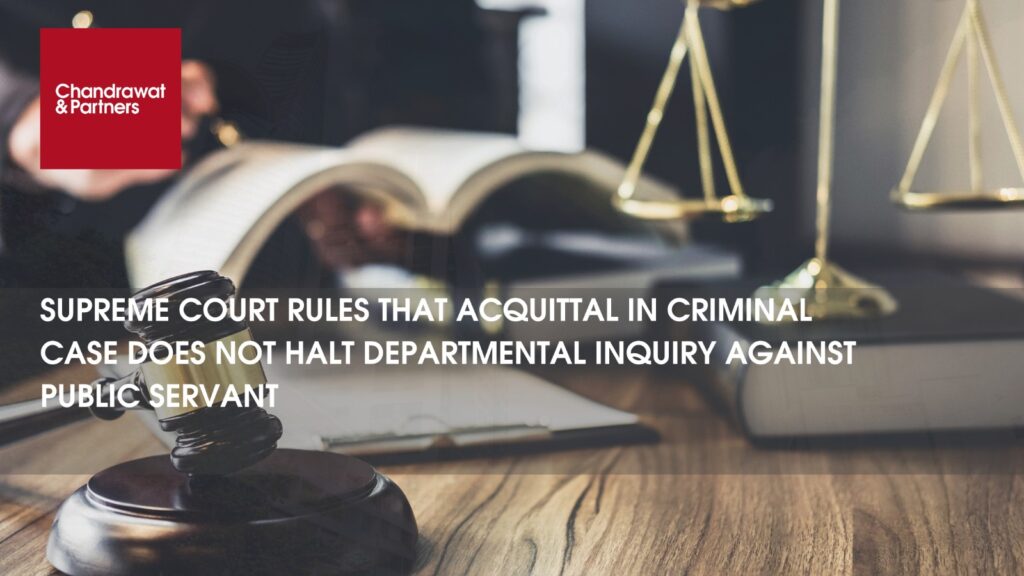Home > Recent Judgements > Supreme Court Rules That Acquittal in Criminal Case Does Not Halt Departmental Inquiry Against Public Servant
Feb 06, 2025
Supreme Court Rules That Acquittal in Criminal Case Does Not Halt Departmental Inquiry Against Public Servant
In a pivotal decision, the Supreme Court of India has clarified that the acquittal of a public servant in a criminal case does not prevent the initiation or continuation of departmental proceedings. The court emphasized that disciplinary actions are separate from criminal trials, as the standard of proof required in departmental inquiries is lower.
This ruling came in the case of Airports Authority of India vs. Pradip Kumar Banerjee (Civil Appeal No. 8414 of 2017), where the court upheld the dismissal of an engineer accused of bribery, even after his acquittal in a criminal case. The judgment reinforces the notion that public servants must maintain high standards of integrity, regardless of the outcome of criminal trials.
Case Background
The case involved Pradip Kumar Banerjee, who was serving as an Assistant Engineer (Civil) with the Airports Authority of India (AAI) when he was arrested on charges of bribery. The CBI accused him of demanding and accepting illegal bribes under the Prevention of Corruption Act, 1988.
After being convicted by the Special Judge at the CBI Court in Alipore, Banerjee was dismissed from service without a departmental inquiry. However, he was later acquitted by the Calcutta High Court in a criminal appeal, based on a “benefit of doubt,” rather than full exoneration.
Despite this acquittal, AAI proceeded with a new disciplinary inquiry, asserting that the higher standard of proof in criminal trials did not apply to departmental investigations.
Supreme Court’s Ruling and Observations
A Bench of Justices J.K. Maheshwari and Sandeep Mehta ruled in favor of AAI, affirming that an acquittal in a criminal case does not prevent an employer from carrying out disciplinary proceedings. The court highlighted that the standard of proof in a criminal trial is “beyond reasonable doubt,” whereas departmental inquiries are based on the “preponderance of probabilities.”
Citing previous rulings, the Supreme Court reiterated: “A disciplinary proceeding is not a criminal trial. The standard of proof required is that of preponderance of probability, not proof beyond reasonable doubt.”
The court further noted that even if certain evidence is not accepted in a criminal court, it may still be used by the disciplinary authority to assess an employee’s conduct. The Division Bench of the Calcutta High Court was found to have erred in interfering with the disciplinary authority’s findings, which had already upheld the dismissal.
Key Arguments and Findings
The Additional Solicitor General, K.M. Nataraj, representing AAI, argued that the disciplinary inquiry was justified because Banerjee’s acquittal was not an “honorable acquittal” but was based on insufficient evidence.
The Supreme Court agreed with this reasoning, ruling that a disciplinary authority is not bound by the decisions of a criminal court. The court observed that the Enquiry Officer had adequate evidence to support the misconduct, even if it did not meet the strict criteria required for a criminal conviction. It also ruled that the failure to examine the complainant was not detrimental to the disciplinary proceedings, as other witnesses and circumstantial evidence provided sufficient grounds for action.
For more information or queries, please email us at
enquiries@chandrawatpartners.com





